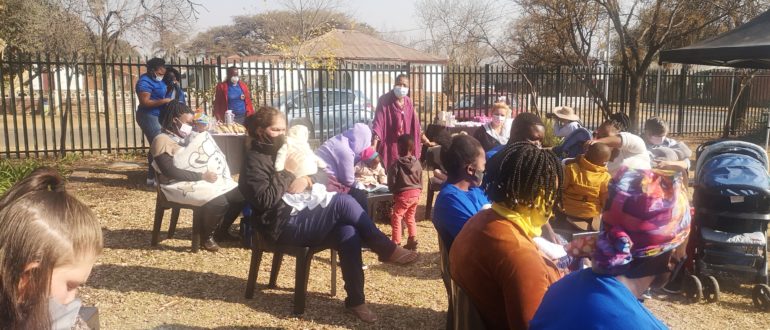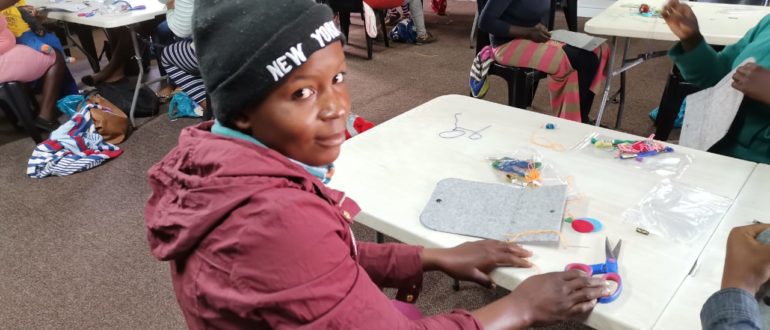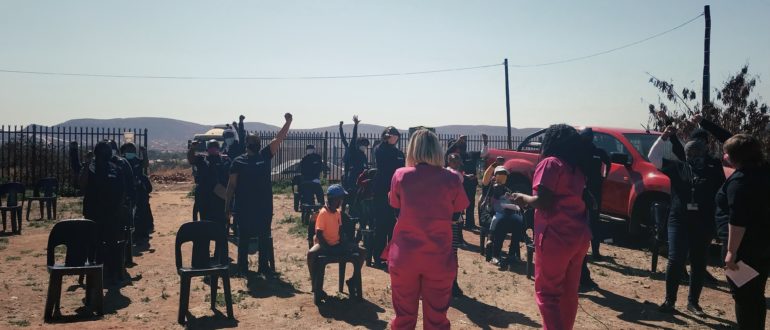Well Being Africa (WBA), celebrated World Breastfeeding Week 2020 in a couple of activities which commenced on 3 August 2020 at Melusi, in Pretoria West. #Breastfeedingweek2020, #DGMT, #Wellbeingafrica1. The theme for the year 2020 WBW is “Support breastfeeding for a healthier planet”.
In her speech, the CEO of WBA, Dr. Debbie Kupolati reiterated the fact that the world is facing the challenge of climate change, global warming, and environmental degradation due to emissions from greenhouse gases resulting from the increase in industrialization and other human activities.
We can all contribute to reducing global warming through our activities including the way we feed our babies she said. Dr. Kupolati explained how breastfeeding contributes to reducing climate change and environmental degradation. Breastmilk is a natural renewable food that is environmentally safe, produced, and delivered to the consumer without pollution, packaging, or waste. Breastfeeding enables greater economic benefit for individuals, communities, and the nation at large. For example, no electricity is needed to produce breastmilk, and it requires no fuel for transport. #Breastfeedingandclimatechange,
Breastfeeding provides babies with the best possible resource to start life, delivers robust health, nutritional and emotional benefits to mom and baby as well as forms part of the sustainable food system. Though breastfeeding is natural, it is not always easy. Therefore, moms need support to initiate and sustain breastfeeding.
On Tuesday 4 August, the celebration continued at Zamazama Clinic in Pretoria West. There the staff of Well Being Africa engaged with moms and expecting moms at the clinic as well as conducted door-to-door visits to promote breastfeeding.
On Wednesday 5 August, the event was taken to Woodlane Clinic in Pretoria East. Breastfeeding promotion and awareness was undertaken by the staff of Well Being Africa, with a focus on breastfeeding in the context of COVID-19. Moms were made to understand that breastfeeding protects babies even in the circumstance of COVID-19 infection with all safety and hygiene measures duly observed.
Notable achievements during the WBW 2020 celebration
- Four moms were assisted to re-lactate and continued to breastfeed successfully and happily. Two of the moms had infants and were giving formula feeds for various reasons which included breast had no milk, no family support, and post-partum stress. Since the moms desired to breastfeed, WBA’s field workers and BF experts provided appropriate BF education and support. We are super excited to see the moms re-establish breastfeeding to continue to give breastmilk only to their babies up to six months of age.
- The planting of 7 trees each one representing one day of the breastfeeding week.
- Giving out of 150 breastfeeding customised masks in support of mom’s compliance with the regulations of preventing the spread of COVID – 19. The breastfeeding customised masks were also to serve as a reminder that breastfeeding is best for babies.
- Giving out breastfeeding customised T-shirts to 40 community health workers towards enhancing the support for breastfeeding in the communities
Lesson Learned
The lessons we have learned from the activities of the WBW 2020 are:
- The positive breastfeeding outcomes we realised during the WBW 2020 activities, confirm the fact that moms need to be supported to breastfeed effectively.
- The interactions of our field workers with moms confirm the effectiveness of peer support in breastfeeding support and care. Our field workers are young breastfeeding moms. They speak in a way that moms easily understand. The moms readily accept the counsels they receive from the field workers because they see them as colleagues in breastfeeding endeavours who are more knowledgeable in breastfeeding.
- Our field workers have previously undergone training in breastfeeding support. Furthermore, they are surrounded by experienced dietitians, nutritionists, senior nurses, and medical doctors with whom they interact for enriching their knowledge and developing their skills in breastfeeding support.
Conclusion
Beyond the world breastfeeding week, WBA continues her mission of protecting, promoting, and supporting breastfeeding in our communities towards contributing to reducing nutritional stunting in children. The ongoing Pilot breastfeeding project is confirming the feasibility of our concept of capacity development in breastfeeding as well as the accessibility of BF support platforms for moms. We are seeing impressive results already, and we look forward to a bigger and sustainable impact as the project is scaled in 2021.
Acknowledgements
We like to express our gratitude to the DG Murray Trust for funding the Pilot Breastfeeding Support project in Daspoort, Pretoria West, South Africa. The Tebelo NPO is gratefully acknowledged for the financial support to the Dietetics students of the University of Pretoria toward the tree planting and vegetable garden.




